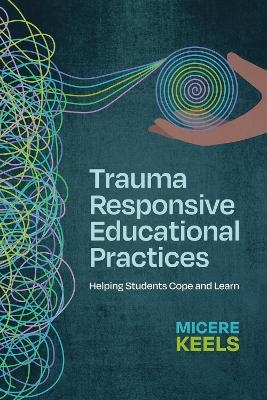
Trauma Responsive Educational Practices
Helping Students Cope and Learn
Seiten
2023
Association for Supervision & Curriculum Development (Verlag)
978-1-4166-3173-6 (ISBN)
Association for Supervision & Curriculum Development (Verlag)
978-1-4166-3173-6 (ISBN)
A wide range of adverse childhood events - including physical, verbal, emotional, and sexual abuse; chronic bullying; violence; and food and housing insecurity - can lead to a host of negative outcomes. However, when schools provide developmentally supportive responses to these challenges, post-traumatic growth becomes possible.
No educator can ignore the effects of traumatic stressors on students. This is especially true for those in schools serving racially and ethnically marginalized or low-income children.
Every day, millions of students in the United States go to school weighed down by interpersonal traumas, community traumas, and the traumatic effects of historical and contemporary race-based oppression.
A wide range of adverse childhood events—including physical, verbal, emotional, and sexual abuse; chronic bullying; community or domestic violence; and food and housing insecurity—can lead to a host of negative outcomes. However, when schools provide developmentally supportive responses to these challenges, post-traumatic growth becomes possible.
In Trauma Responsive Educational Practices, Micere Keels
* examines the neurobiology of trauma;
* presents mindfulness strategies that strengthen student self-regulation and extend professional longevity; and
* demonstrates how to build pedagogically caring relationships, psychologically safe discipline, and an emotionally safe classroom learning climate.
Keels also shows educators how to attend to equity and use trauma as a critical lens through which to plan instruction and respond to challenging situations with coregulation.
It's important to understand that trauma is subjective and complex, treatment is not prescriptive, and recovery takes time. This book helps educators support students on that road—not merely to survive trauma but to focus on their strengths and flourish with effective coping skills.
No educator can ignore the effects of traumatic stressors on students. This is especially true for those in schools serving racially and ethnically marginalized or low-income children.
Every day, millions of students in the United States go to school weighed down by interpersonal traumas, community traumas, and the traumatic effects of historical and contemporary race-based oppression.
A wide range of adverse childhood events—including physical, verbal, emotional, and sexual abuse; chronic bullying; community or domestic violence; and food and housing insecurity—can lead to a host of negative outcomes. However, when schools provide developmentally supportive responses to these challenges, post-traumatic growth becomes possible.
In Trauma Responsive Educational Practices, Micere Keels
* examines the neurobiology of trauma;
* presents mindfulness strategies that strengthen student self-regulation and extend professional longevity; and
* demonstrates how to build pedagogically caring relationships, psychologically safe discipline, and an emotionally safe classroom learning climate.
Keels also shows educators how to attend to equity and use trauma as a critical lens through which to plan instruction and respond to challenging situations with coregulation.
It's important to understand that trauma is subjective and complex, treatment is not prescriptive, and recovery takes time. This book helps educators support students on that road—not merely to survive trauma but to focus on their strengths and flourish with effective coping skills.
Micere Keels is an associate professor at the University of Chicago and the founding director of the Trauma Responsive Educational Practices Project. For over two decades, she has worked to integrate mental health promotion interventions into educational systems and structures, from early childhood centers to high schools. The TREP Project works to develop the individual and organizational capacity of educators and schools serving children growing up in neighborhoods that have high levels of toxic stress, such as violent crime, concentrated poverty, concentrated foster care involvement, and housing instability.
| Erscheinungsdatum | 03.04.2023 |
|---|---|
| Sprache | englisch |
| Maße | 152 x 229 mm |
| Gewicht | 134 g |
| Themenwelt | Sozialwissenschaften ► Pädagogik ► Didaktik |
| Sozialwissenschaften ► Pädagogik ► Sonder-, Heil- und Förderpädagogik | |
| ISBN-10 | 1-4166-3173-9 / 1416631739 |
| ISBN-13 | 978-1-4166-3173-6 / 9781416631736 |
| Zustand | Neuware |
| Informationen gemäß Produktsicherheitsverordnung (GPSR) | |
| Haben Sie eine Frage zum Produkt? |
Mehr entdecken
aus dem Bereich
aus dem Bereich
achtsame und responsive Handlungsmöglichkeiten
Buch | Softcover (2024)
Herder (Verlag)
18,00 €
29 Regeln für eine kluge Lehre – Das LENA-Modell
Buch | Softcover (2024)
Carl-Auer Verlag
24,95 €


